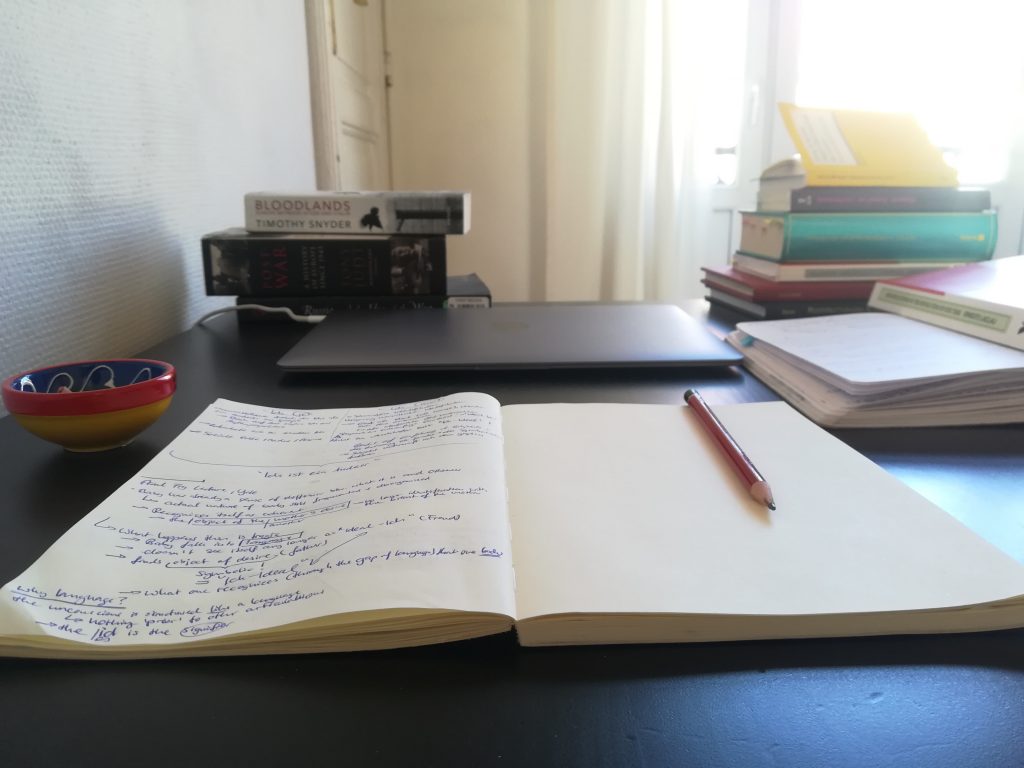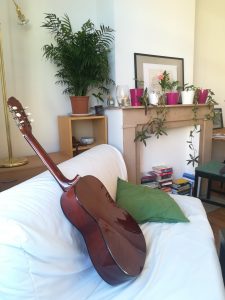“My alarm rings, it’s 7:30 am. I get up, open the window, and go to the kitchen to make myself a bowl of Müsli and a cup of black tea. Again. It feels like a scene from ‘Groundhog Day’, the famous American 90s comedy that features its protagonist Phil trapped in a time loop. I sit down and embark on my research for the PhD project I am working on since several months. While we PhD students are certainly among the least affected, the current pandemic, in particular social distancing, also has an impact on how we work and live.
I love my PhD. It is an amazing opportunity to engage with the literature I like and to delve entirely into a topic I am passionate for. However, when deciding to pursue a PhD, one has to realise that doing so can be a somewhat lonely and tiring endeavour. Lonely because one works by oneself on a project for a timespan; tiring because there are (almost) no deadlines, no set working hours, and no structure telling you what to do and when. The responsibility of your working life is yours alone. This pure freedom is very handy at times. But I assume, even for the most dedicated and disciplined of us, it happens occasionally that you find yourself sitting at your desk in the evening contemplating how much has been achieved in a well-intended work day.
“I love my PhD. It is an amazing opportunity to engage with the literature I like and to delve entirely into a topic I am passionate for.”
In normal times, research life at Brussels School of International Studies (BSIS) provides for good remedies against these troubles. It is the small and colloquial research community that keeps one’s spirits up, banishing from the outset any feeling of being lost by oneself in the abyss of academia. The daily chit-chat and exchange of ideas, Thursday’s after-work drinks, or occasional lunches give proof of the close and supportive group, academics, administration and research students form. Usually, I would spend the day working normal hours at my desk at the school, leaving my project behind when going home. While one of course can never escape one’s dissertation entirely, I have found it helpful to establish a certain routine to stick to. Other fixed points that structure everyday life are regular meetings with our academic supervisors as well as presentations, workshops and conferences during the year. These are all occasions where we PhD students have the opportunity to present our work and exchange views with colleagues working on the same field, usually scattered across the globe.
“There is plenty of time now for reading and thinking with almost no distraction – a situation most researchers could only dream of during normal times.”
With the prompt shutdown of public life, BSIS was closed as was everything else. The university body tackled the enormous task of transporting the entire operation to the digital realm. While most of our professional communication at BSIS can easily be done remotely, the lockdown-measures nonetheless confront us PhD students with the reality of being “stuck” with our research on our own. Since conferences and academic workshops globally have been cancelled, the few deadlines for papers that would have provided some points for orientation vanished. Nonetheless, prominently on my desk is a pile of books that I strive to conquer, a daily reminder that progress must be made.
There are of course positive sides to all of this. There is plenty of time now for reading and thinking with almost no distraction – a situation most researchers could only dream of during normal times. However, this requires some self-organization and structure.
“we should look at these days as an opportunity to make leap forward in our research and deem ourselves privileged since we, unlike many others, are in fact able to continue with our work.”
People are different of course. For me it works best to keep a relatively strict schedule: After finishing my cup of tea, one hour of reading background literature; then a pre-lunch session; and, after an extensive break, continuing with another task such as taking notes, a different body of literature, or actual writing. This, of course, is an ideal that, while being pursued time and again, some days remains just that: an ideal. And that is fine. With all the turmoil out there and the “playing-hard” part being severely limited, the “working-hard” component should be put in perspective respectively. The biggest task for all of us certainly remains to stay sane. Initial ambitions to make use of all the extra time now not spent socially in some productive way for my studies waned quickly. Instead, I’ve resorted to sports, I’m enjoying novels I’d planned to read since ages, and I’ve given it a try with the guitar my colleague Professor Harm Schepel kindly lent me.
I look forward to the physical reopening of the university for the research community, which provides structure and company – both of which I am regrettably missing in these Groundhog-days. Who would have thought one would miss waiting in line to use the microwave… Yet, as long as public life is on hold, we should look at these days as an opportunity to make leap forward in our research and deem ourselves privileged since we, unlike many others, are in fact able to continue with our work.”
–Mario Baumann, PhD Researcher in International Relations.



